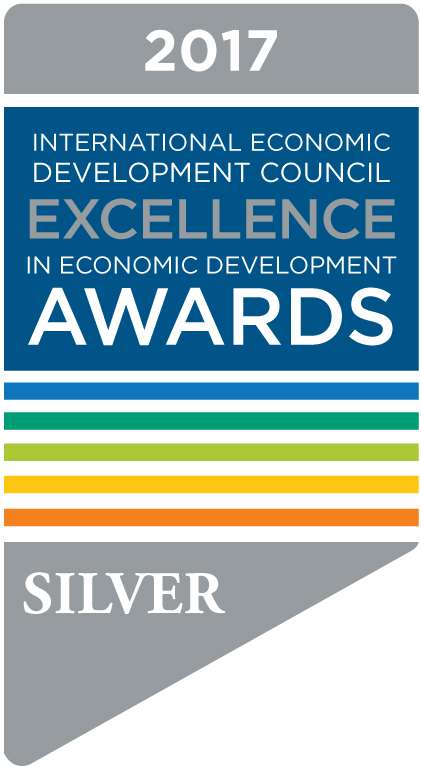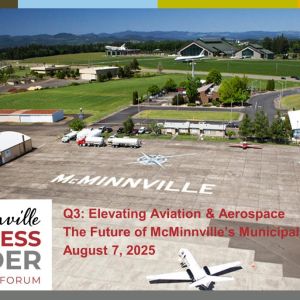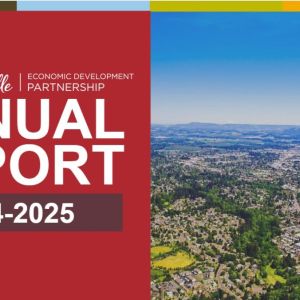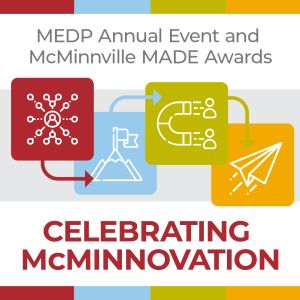5 Ways to Think Differently About Workforce Talent
May 24, 2018

In May, we at MEDP had the opportunity to attend both the 2018 Willamette Valley Oregon Economic Forum and participate in the first ever Oregon Talent Summit. We learned that overall, the economic forecast in Oregon is positive with few indications of the market taking a down turn any time soon. Of course, the question at the top of mind was workforce. According to the Oregon Employment Department the state’s unemployment rate in April was 4.1% while in Yamhill County, the unemployment rate for April was 3.6%. Though both of these are nearing historically low rates, ECONorthwest’s President John Tapogna states that the lack of wage growth indicates that there is still not yet a talent crisis.
Recently, MEDP held a tour at McMinnville High School’s Career Technical Center followed by a industry leader roundtable discussion on finding entry level talent. Hearing from local businesses we know that though there is not a talent crisis, there is a problem when it comes to finding an emerging and qualified workforce. Taking lessons learned from both the Economic Forum and the Oregon Talent Summit, we at MEDP are looking at the word “talent” to see how we can change our thinking and prepare future generations to join the workforce.
1. “Soft” skills are essential skills
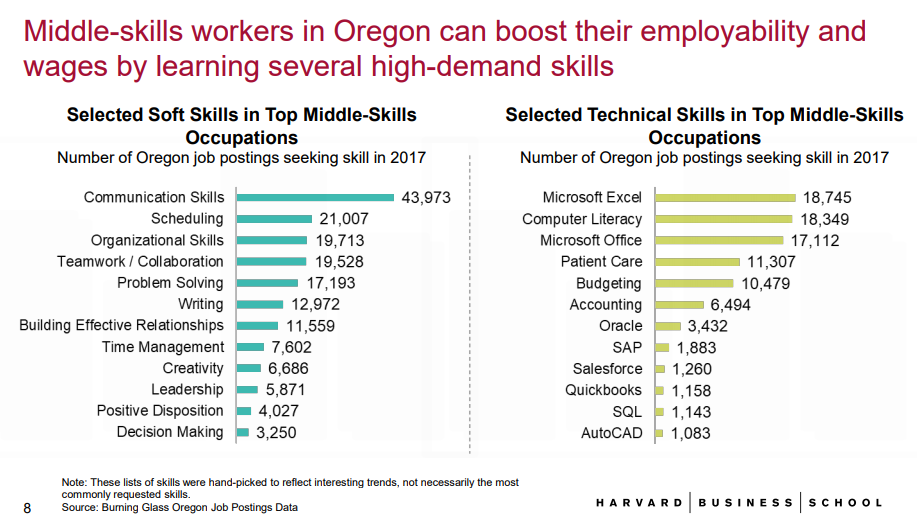
We’ve all heard the phrase “soft skills” before. The ability to hold a conversation, get to work on time, write an email, and keep track of your schedule. One change we’re seeing as automation becomes more prevalent in the U.S. and tasks are becoming automated is the need to stop thinking of these traits as “soft skills” and instead recognize them for what they are: essential. According to Harvard Business Professor Joseph Fuller, job postings in Oregon stated a desire for communication skills more than any other skills.
The emerging workforce needs to establish these skills early and quickly. Often, technical skills can be taught, but you can’t teach someone how to have a personality.
2. Internal training can help mitigate the talent war
How is your company currently marketing your positions? University of Oregon Professor of Economics Tim Duy relayed that companies can no longer rely on the ”unicorn worker.” With a shrinking available talent pool, it is getting more and more difficult to find workers who fit all of your specifications. The solution: relax technical skills hiring standards and instead invest in internal training. Not only will this help you in hiring, but studies have shown that training workers bolsters economic activity going forward.
All this being said, take a look at your company’s job description. Is there a certain qualification or technical skill that could be stated more broadly? Instead of asking for the specific qualification, companies can replace it with descriptors like “an aptitude for mechanical design” or related tasks. Train what can be trained internally and focus on getting employees who are eager to learn and are the correct fit for your team.
3. We need to think differently about apprenticeships
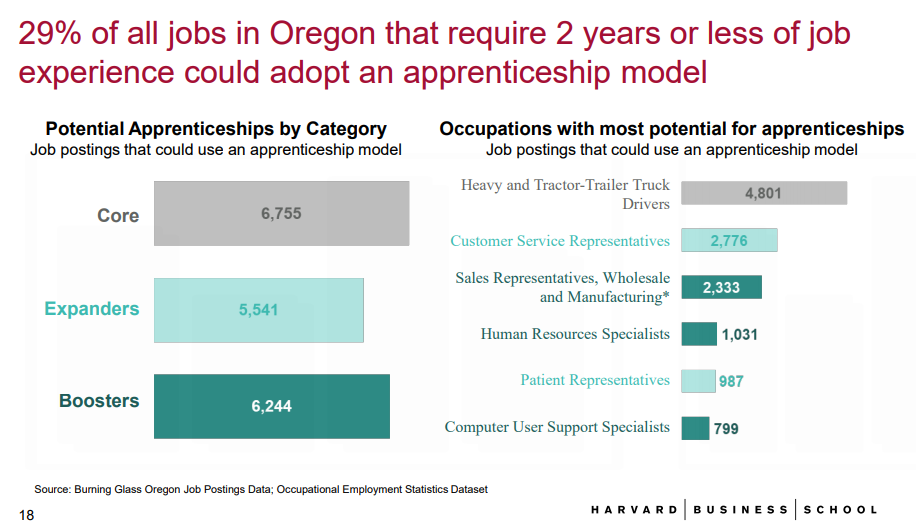
Apprenticeships are a great way to build and encourage future workers to think about careers. As of now, there are 27 occupations that use apprenticeships. These occupations are usually licensed (think electrician, plumber, firefighter) and require a worker to understand one thing really really well. Professor Fuller argues that, with a different mind set, 74 occupations could adopt an apprenticeship model. 21 of these occupations are what Fuller calls “Expanders” which are living wage occupations with fast-growing demand such as customer service representatives. The other 26 are occupations Professor Fuller calls “Boosters,” higher wage and middle-skills occupations facing “degree inflation,” meaning, jobs that did not use to require a four-year degree to obtain (bookkeeping, sales, administrative assistance), but which now are being required in new job postings.
Thinking differently about apprenticeships could change how young people enter the job market while limiting student debt and allowing students to directly see how their education is leading to a career. Students in high school could even enter “pre-apprenticeship” programs to help them explore their options.
4. Future work requires the ability to learn
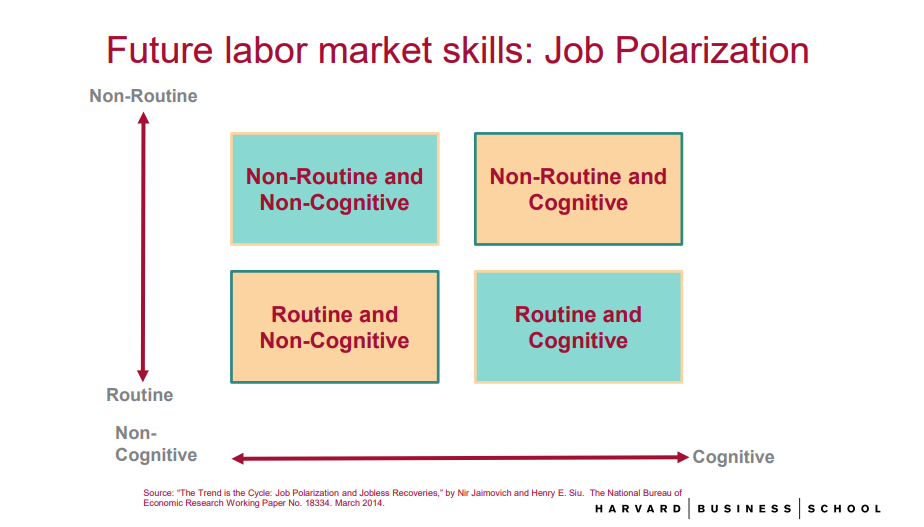
As tasks become automated, we can think of jobs in two categories, routine and cognitive. Routine refers to changes from day to day in the job setting. Cognitive refers to the amount of thought that needs to be put into completing that task. Jobs that are routine and non-cognitive are at the highest risk of being automated. What this means is that future jobs will require employees to know a variety of skills.
It is no longer enough to go to high school and enter the workforce knowing how to do one thing. Instead, workers must now be equipped to continue their education for the entirety of their lives. Whether this means attending trainings, staying up-to-date on new technologies, or continually challenging different ways of thinking, future employees will have to be able to learn continuously and in a variety of areas.
5. Teaching children social skills is imperative to future success
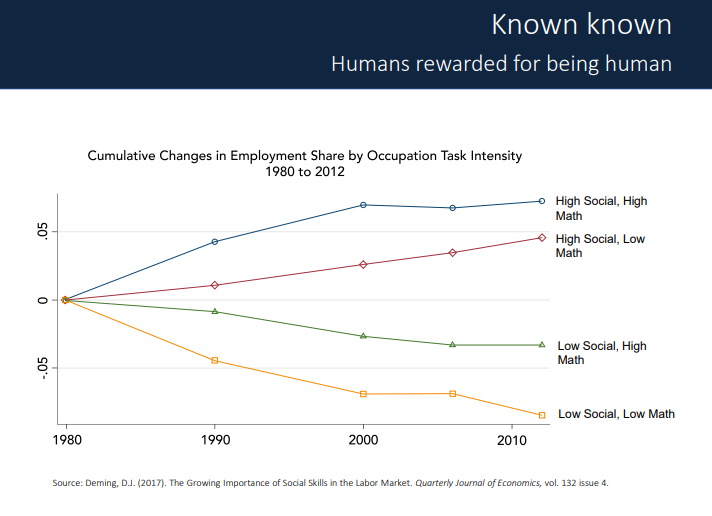
John Tapogna spoke on future workforce by saying “if you had to choose between math skills and social skills, keep the social skills and throw away math.” Future workers will have to know how to communicate well. These skills will be imperative to finding and maintaining employment. Professor Fuller commented on this trend as well saying that it needs to start early, and it needs to be ingrained in every subject. He gave the example of math classes. Rather than having students just write out the numbers, they need to be able to explain how they arrived at the answer. Asking a student to write a paragraph about solving a math problem will become extremely valuable for them in the world of work.
The world is changing at a rapid pace and learning how to adapt to new technologies faster than ever before. We need to ensure that the future workforce is adapting as well, and this means changing the way we think about workforce talent and changing how we shape the future workers around us.
We at MEDP are listening to the needs of our businesses and educational institutions. Interested in getting involved in our McMinnville | WORKS programming? Give us a call today!

